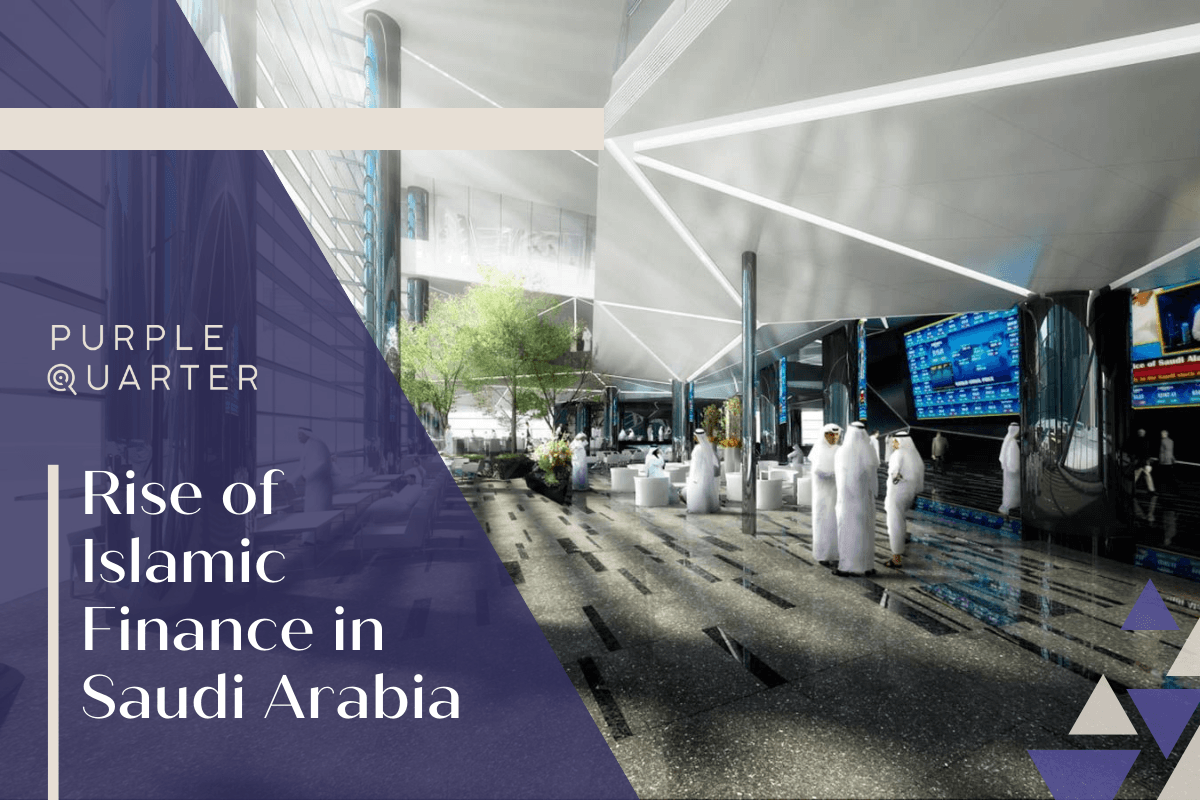
Currently, Islamic financial institutions across the globe manage over $2 trillion in assets and are growing at a rate of 15%-25% per year. The Kingdom of Saudi Arabia (KSA) is working to become a regional and global ecosystem for Islamic banking. To achieve this, KSA is keen to develop the sector and attract investments from regional and international Islamic investors and funds. Let us look at how the segment is faring in Saudi Arabia.
What is Islamic Finance?
Islamic finance covers varied aspects of managing money as per Islamic moral principles right from saving, investing, and borrowing to purchasing any physical assets. It regards lending as an unfairly favored relationship; hence, loans must be interest-bearing, and interest cannot be earned. Islamic banking is the largest sector in the Islamic finance industry, contributing to over 70% of the industry’s assets.
The standard practices of Islamic finance and banking arose alongside the establishment of Islam. Unlike conventional finance, Islamic finance strictly forbids some practices and principles used in traditional finance. The global Islamic finance industry grew by 10.2% in 2021, compared to 11.4% in 2020 (excluding Iran), fueled by banking asset growth.

Islamic Finance in Saudi Arabia
Despite global economic conditions being tough recently, Islamic finance has managed to maintain a consistent growth rate. This is despite increased COVID-19 cases, the Ukraine-Russia conflict, high inflation, and ongoing supply chain gluts.
The global Islamic finance market is fragmented, with many players vying for a large share of the developing market. It is moderately growing in some regions, such as Asia and Africa, with the presence of a large number of local players as well as some major players. However, the GCC is a highly competitive market with many international players.

Currently, Saudi Arabia is the largest Islamic finance market globally and leads the GCC Islamic Finance segment with a 49% share of the market, followed by the UAE (19%), Kuwait (16%), Qatar (11%), and Bahrain (5%). The Saudi Arabian Islamic Finance Market was worth $945 billion in 2021 and is expected to reach $1,240 billion by 2028.
What is fuelling the growth?
The dominant Muslim population and their shift toward Sharia-compliant products is a major driving force for the Islamic finance market. Official statistics show that 90% of Saudi Arabia’s citizens are Sunni Muslims, while 10% are Shia Muslims. Furthermore, the Saudi government has implemented numerous programs and policies in an effort to strengthen Islamic finance in the country.
Saudi Vision 2030 is an initiative launched by Saudi Arabia's top leaders to reduce the country's reliance on the oil industry. Diversify income sources and expand public resources such as tourism, infrastructure, education, and the recreation industry. Also to encourage tech-related startups to grow such as e-commerce which is soaring in Saudi Arabia at present. The main goal of Saudi Vision 2030 is to expand Saudi capital markets in order to stabilize the economy and achieve sustainable growth during the projection period.

Sukuk’s (Islamic bonds are known as Sukuk) debt issuance program was announced by KSA’s Ministry of Finance in July 2017. This program has helped rapidly increase the country’s domestic-market sales of Sukuk to hit $14.4 billion, up 185% from the previous year. The record figures account for more than half of global domestic Sukuk sales, with the Saudi Arabia’s government alone selling more than 60% of it.
The buying of Sukuk by financial institutions is another factor driving the surge in Sukuk sales. In June 2022, Saudi Central Bank (SAMA) placed about $13 bn with banks to ease a funding crunch, and some of the funds could be invested again in the Sukuk market.
What next?
Tadawul, Saudi Arabia’s stock exchange, launched its first-ever Islamic index last month in response to rising demand for Sharia-compliant tools and investment services. This index, known as TASI (Tadawul All Share Index) Islamic Index, will track the performance of Islamic finance institutions listed on the Saudi Exchange.
The TASI Islamic Index is constructed and will be screened for Sharia compliance, which is approved by the exchange’s Sharia Advisory Committee. The committee will be responsible for overseeing and approving the list of Islamic banking companies which are listed in Tadawul on a periodic basis.

BNPL is another segment that is trying to be compliant with sharia practices. The BNPL segment in Islamic Finance is growing nowadays with Saudi Arabia and UAE emerging as leaders in the respective segment. The launch of four new BNPL platforms —- Tabby, Spotti, PostPay, and Tamara since 2019 is a testament to this trend.
The BNPL startups from the Middle East are offering zero-interest repayment plans to comply with Islamic finance principles. They have a transparent fee structure for missed installments and an upper limit on fees that can be accrued.
Purple Quarter for Islamic Finance
With the Islamic finance market being very competitive in Saudi Arabia, to survive and thrive in the changing market environment sharia-compliant startups should adopt the latest technologies. Technology is disrupting numerous facets of Islamic finance at present. Technologies will help these companies connect better with their consumers.
Information technology enables sophisticated product development, better market infrastructure, implementation of reliable techniques for control of risks, and much more. Strong technology leadership is an essential part of any successful digital transformation. Tech Leaders play an important role in continuous innovation and building new products that will scale up Islamic finance companies across Saudi Arabia with better architectures and products.
Since 2017 Purple Quarter has helped several companies match with their ideal tech leaders across the globe. Leveraging our IP — Behavioral Metrics Model, companies across sectors, regions, and technology domains have recruited chief technology officers (CTO), VP of Engineering, and head of Engineering (hoe), among other tech leaders. With a huge talent pool to choose from you are just a step away from finding the right tech leader for your business.
Authored by Pratheek. V
For more information, please reach out to the Marketing Team.


